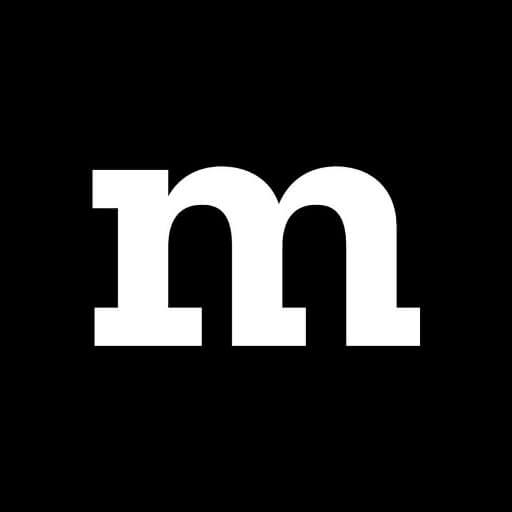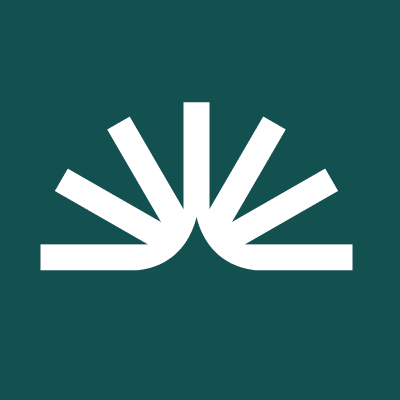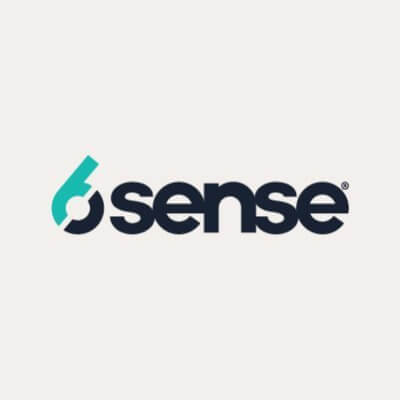Digital Transformation and EHR Adoption Fuel Global Healthcare Integration Market Expansion
Global healthcare integration market size was valued at USD 2.10 billion in 2024 and is projected to reach USD 5.17 billion by 2032, with a CAGR of 11.9% during the forecast period of 2025 to 2032.
"Executive Summary:
The Healthcare Integration Market is experiencing unprecedented growth as evolving consumer demands and technological advancements reshape industry dynamics globally. Recent market research reveals that factors such as increased adoption of innovative solutions, expanding application areas, and rising investments are driving robust market expansion. Industry leaders are capitalizing on emerging trends to enhance product offerings and streamline operations, positioning themselves for long-term success in an increasingly competitive environment.
Global healthcare integration market size was valued at USD 2.10 billion in 2024 and is projected to reach USD 5.17 billion by 2032, with a CAGR of 11.9% during the forecast period of 2025 to 2032.
Comprehensive analysis of the Healthcare Integration Market highlights significant opportunities across various regions, with key markets demonstrating strong potential due to favorable regulatory environments and growing infrastructure development. Market forecasts indicate sustained growth over the next several years, supported by strategic partnerships and ongoing innovation. Stakeholders are encouraged to leverage these insights to make informed decisions and capitalize on the evolving landscape, ensuring continued progress and value creation across all sectors.
Discover the latest trends, growth opportunities, and strategic insights in our comprehensive Healthcare Integration Market report.
Download Full Report: https://www.databridgemarketresearch.com/reports/global-healthcare-integration-market
Healthcare Integration Market Overview
**Segments**
- On the basis of type, the global healthcare integration market can be segmented into products and services. The products segment includes interface engines, medical devices integration software, and media integration solutions, among others. The services segment comprises consulting, training, support, and maintenance services to facilitate seamless integration of healthcare systems and processes. With the increasing adoption of electronic health records (EHRs) and the need for interoperability among various healthcare IT systems, the demand for healthcare integration products and services is on the rise.
- By technology, the market can be categorized into application integration, data integration, device integration, and healthcare integration services. Application integration involves integrating various healthcare applications to ensure smooth data flow and communication between different systems. Data integration focuses on consolidating and standardizing data from disparate sources to provide a unified view of patient information. Device integration pertains to the integration of medical devices, equipment, and sensors with healthcare IT systems for real-time monitoring and analysis. Healthcare integration services encompass a range of solutions to address the complexities of integrating healthcare systems and processes.
- Based on end-user, the global healthcare integration market is segmented into hospitals, clinics, diagnostic laboratories, and healthcare payers. Hospitals are the primary end-users of healthcare integration solutions due to the large volume of patient data and the need for efficient information exchange within the facility and with external stakeholders. Clinics and diagnostic laboratories also utilize healthcare integration technologies to streamline operations, improve patient care, and enhance decision-making. Healthcare payers, including insurance companies and government agencies, leverage integration solutions to manage claims processing, billing, and reporting more effectively.
**Market Players**
- Some of the key players in the global healthcare integration market include IBM Corporation, Oracle Corporation, Infor, Inc., InterSystems Corporation, Allscripts Healthcare Solutions, Inc., Orion Health Group Limited, Cerner Corporation, and Infor, Inc. These companies offer a wide range of healthcare integration products and services to meet the diverse needs of healthcare organizations worldwide. With a focus on innovation, strategic partnerships, and customer-centric solutions, these market players are driving the growth of the healthcare integration market and shaping the future of healthcare IT.
The global healthcare integration market continues to witness significant growth propelled by the increasing adoption of electronic health records (EHRs) and the emphasis on interoperability across healthcare IT systems. The segmentation of the market based on type into products and services highlights the diverse offerings available to healthcare organizations seeking seamless integration solutions. From interface engines to consulting services, the market caters to a variety of needs to ensure efficient data flow and communication within healthcare systems. As healthcare providers strive for operational efficiency and improved patient care, the demand for healthcare integration products and services is expected to surge further.
In terms of technology segmentation, the market is categorized into application integration, data integration, device integration, and healthcare integration services. Application integration plays a crucial role in ensuring the smooth flow of data among different healthcare applications, essential for comprehensive patient care and streamlined operations. Data integration addresses the challenge of consolidating data from multiple sources to provide a unified view of patient information, facilitating informed decision-making. Device integration, on the other hand, focuses on the integration of medical devices and equipment with healthcare IT systems for real-time monitoring and analysis. Healthcare integration services encompass a wide array of solutions to address the complexities of integrating diverse healthcare systems and processes, catering to the evolving needs of the industry.
The end-user segmentation of the global healthcare integration market reflects the diverse stakeholders benefiting from integration solutions. Hospitals, as primary end-users, leverage healthcare integration technologies to manage vast amounts of patient data efficiently and ensure seamless information exchange both within the facility and with external parties. Clinics and diagnostic laboratories also rely on integration solutions to streamline operations, enhance patient care, and optimize decision-making processes. Healthcare payers, including insurance companies and government agencies, utilize integration solutions to improve claims processing, billing accuracy, and reporting efficiency, contributing to overall healthcare system optimization.
Key market players in the global healthcare integration space, such as IBM Corporation, Oracle Corporation, InterSystems Corporation, and Cerner Corporation, are at the forefront of driving innovation and shaping the future of healthcare IT. These companies offer a wide range of products and services tailored to meet the diverse needs of healthcare organizations worldwide, emphasizing strategic partnerships, customer-centric solutions, and ongoing innovation. With a focus on addressing the evolving demands of the healthcare industry, market players are poised to drive the growth of the healthcare integration market further, facilitating enhanced connectivity and interoperability across healthcare ecosystems.The global healthcare integration market is witnessing significant growth driven by the increasing demand for seamless data flow and communication within healthcare systems. The segmentation of the market into products and services offers a wide array of solutions to cater to the evolving needs of healthcare organizations worldwide. As the adoption of electronic health records (EHRs) continues to rise, the emphasis on interoperability among various healthcare IT systems is becoming paramount, leading to a surge in the demand for healthcare integration products and services.
In terms of technology segmentation, application integration, data integration, device integration, and healthcare integration services play critical roles in ensuring efficient operations and improved patient care within healthcare facilities. Application integration facilitates the smooth flow of data between different healthcare applications, essential for providing comprehensive patient care. Data integration helps in consolidating and standardizing data from various sources to enable informed decision-making. Device integration enables real-time monitoring and analysis by integrating medical devices and equipment with healthcare IT systems. Healthcare integration services provide comprehensive solutions to address the complexities of integrating diverse healthcare systems and processes, reflecting the industry's need for seamless connectivity.
The end-user segmentation of the global healthcare integration market showcases the diverse stakeholders benefiting from integration solutions. Hospitals rely on healthcare integration technologies to manage vast volumes of patient data effectively and ensure seamless information exchange within and outside the facility. Clinics and diagnostic laboratories utilize integration solutions to streamline operations, enhance patient care, and optimize decision-making processes. Healthcare payers leverage integration solutions to improve claims processing, billing accuracy, and reporting efficiency, contributing to overall healthcare system optimization.
Key market players such as IBM Corporation, Oracle Corporation, InterSystems Corporation, and Cerner Corporation are driving innovation and shaping the future of healthcare IT by offering a broad range of products and services tailored to meet the diverse needs of healthcare organizations globally. Through strategic partnerships, customer-centric solutions, and continuous innovation, these market players are poised to further expand the healthcare integration market, enhancing connectivity and interoperability across healthcare ecosystems. As the industry evolves, market players are expected to play a pivotal role in driving the adoption of advanced healthcare integration solutions, ensuring seamless data exchange and improved operational efficiency within healthcare systems.
The Healthcare Integration Market is highly fragmented, featuring intense competition among both global and regional players striving for market share. To explore how global trends are shaping the future of the top 10 companies in the keyword market.
Learn More Now: https://www.databridgemarketresearch.com/reports/global-healthcare-integration-market/companies
Regional Outlook
North America:
The Healthcare Integration Market in North America is driven by advanced technological infrastructure, strong consumer demand, and supportive government policies. The United States holds the largest share due to early adoption and robust investment.
Europe:
Europe showcases steady growth in the Healthcare Integration Market, supported by strict regulatory frameworks, sustainability initiatives, and innovation-led economies. Key contributors include Germany, the U.K., and France.
Asia-Pacific:
Asia-Pacific is the fastest-growing region for the Healthcare Integration Market, fueled by population growth, urbanization, and industrial expansion. China, India, and Japan are major markets with high potential.
Latin America:
Growth in Latin America is moderate but rising, driven by expanding middle-class populations and increasing awareness of Healthcare Integration Market applications. Brazil and Mexico are the leading countries.
Middle East & Africa:
The Healthcare Integration Market in this region is gaining momentum due to infrastructural developments, diversification efforts, and rising investments. The UAE, Saudi Arabia, and South Africa are key players.
Competitive Landscape
Future Trends— Global Healthcare Integration Market
Upcoming Technologies:
The Healthcare Integration Market will witness rapid adoption of cutting-edge technologies such as artificial intelligence, machine learning, the Internet of Things (IoT), blockchain, and automation. These technologies are expected to enhance operational efficiency, enable real-time data-driven decisions, and introduce innovative products and services.
Consumer Behavior Changes:
The Healthcare Integration Market will be shaped by changes in consumer preferences toward offerings that are experience-driven, convenient, and personalized. Increasing demand for transparency, digital engagement, and value-driven purchases will push companies to innovate their marketing and product strategies.
Sustainability Trends:
Sustainability will be a critical focus, with consumers and regulators alike driving demand for eco-friendly materials, energy-efficient processes, and circular economy initiatives. Businesses are anticipated to prioritize green innovations to reduce carbon footprints and meet stricter environmental regulations.
Expected Innovations:
The market is expected to see significant innovations, including smart products, integration of advanced analytics for predictive insights, and development of new materials or solutions tailored to emerging needs. Collaboration between technology firms and industry leaders will accelerate these innovations.
Why This Report is Valuable
This report provides in-depth industry insights that help stakeholders understand the current market landscape, key drivers, challenges, and growth opportunities within the Healthcare Integration Market. It offers regional and segment-wise forecasts that enable precise market planning and targeted investment strategies tailored to specific geographic areas and product/service segments.
The report includes comprehensive competitor benchmarking, allowing businesses to evaluate their position relative to key players, understand competitive strategies, and identify gaps or opportunities for differentiation. Additionally, it delivers actionable strategic recommendations based on market trends and data analysis to support informed decision-making, optimize business growth, and enhance market presence.
Top 15 FAQs About the Global Healthcare Integration Market Research Report
- What key segments are analyzed in the Healthcare Integration Market report?
- Which regions show the highest growth potential in the Healthcare Integration Market ?
- What time frame does the Healthcare Integration Market report cover for forecasts?
- What are the major drivers influencing the growth of the Healthcare Integration Market?
- Who are the leading competitors in the Healthcare Integration Market?
- How is market size estimated for the Healthcare Integration Market?
- What research methodologies are used to compile the Healthcare Integration Market report?
- Does the report discuss regulatory impacts on the Healthcare Integration Market?
- Are emerging technologies covered in the Healthcare Integration Market analysis?
- How does consumer behavior affect the Healthcare Integration Market trends?
- What sustainability trends are impacting the Healthcare Integration Market?
- Does the report include a SWOT analysis of key players in the Healthcare Integration Market?
- How frequently is the Healthcare Integration Market report updated?
- Can the Healthcare Integration Market report be customized for specific business needs?
- What are the future opportunities and challenges identified in the Healthcare Integration Market?
Browse More Reports:
https://www.databridgemarketresearch.com/es/reports/global-bio-based-aromatics-market
https://www.databridgemarketresearch.com/es/reports/europe-automotive-software-market
https://www.databridgemarketresearch.com/jp/reports/global-carpet-extraction-cleaner-market
https://www.databridgemarketresearch.com/de/reports/middle-east-and-arica-proximity-sensor-market
https://www.databridgemarketresearch.com/es/reports/global-hosted-telephone-systems-market
https://www.databridgemarketresearch.com/ru/reports/global-rooftop-solar-photovoltaic-pv-market
https://www.databridgemarketresearch.com/de/reports/global-acrylic-boxes-market
https://www.databridgemarketresearch.com/fr/reports/north-america-hospital-furniture-market
https://www.databridgemarketresearch.com/es/reports/global-electro-rheostatic-materials-market
https://www.databridgemarketresearch.com/zh/reports/europe-research-antibodies-reagents-market
About Data Bridge Market Research:
An absolute way to forecast what the future holds is to comprehend the trend today!
Data Bridge Market Research set forth itself as an unconventional and neoteric market research and consulting firm with an unparalleled level of resilience and integrated approaches. We are determined to unearth the best market opportunities and foster efficient information for your business to thrive in the market. Data Bridge endeavors to provide appropriate solutions to the complex business challenges and initiates an effortless decision-making process. Data Bridge is an aftermath of sheer wisdom and experience which was formulated and framed in the year 2015 in Pune.
Contact Us:
Data Bridge Market Research
US: +1 614 591 3140
UK: +44 845 154 9652
APAC : +653 1251 975
Email:- corporatesales@databridgemarketresearch.com
Tag
Healthcare Integration Market Size, Healthcare Integration Market Share, Healthcare Integration Market Trend, Healthcare Integration Market Analysis, Healthcare Integration Market Report, Healthcare Integration Market Growth, Latest Developments in Healthcare Integration Market, Healthcare Integration Market Industry Analysis, Healthcare Integration Market Key Player, Healthcare Integration Market Demand Analysis"


















































































































































